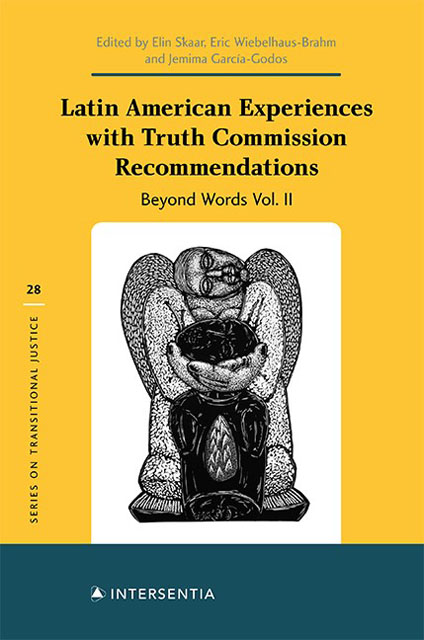Haiti’s Truth and Justice Commission: Forgotten Recommendations, Living Demands
Published online by Cambridge University Press: 19 November 2022
Summary
INTRODUCTION
In 1995, a truth commission was convoked in Haiti. The Haitian National Truth and Justice Commission (Commission Nationale de Véritéet de Justice, CNVJ) sought to uncover the truth about human rights abuses committed between 1991 and 1994, to end impunity, and to reform the justice system in Haiti. first and foremost, the CNVJ was to uncover and establish the facts surrounding a military regime and the most serious human rights violations committed during the three-year period following a coup d’état in 1991.
Completed in 1996, the CNVJ report was entitled “Si m pa rele”, a contraction of the Haitian Creole expression Si m pa rele m’ ap toufe, meaning “If I do not cry out I will suff ocate” . In it, the truThcommission listed a great many recommendations. Reforms of Haiti's justice system attracted significant attention, with the hope of safeguarding against a repetition of the violations the commission had uncovered and providing justice to victims. The comprehensive body of recommendations included reparations, institutional and administrative reform, criminal proceedings, and non-repetition measures. Among other things, the final report placed particular emphasis on addressing sexual violence against women, as well as judicial independence and education of the police force.
Today, Haiti is often labelled a “failed” or “weak” state and has, since 1994, had a near-constant presence of United Nations peace operations (McCalpin 2012, 143; Mobekk 2017, 8). The CNVJ arguably addressed all of the issues that the Haitian state and society faced in 1996, aspiring to overall social and political change. However, many of the issues addressed by the CNVJ are still relevant today. There is still a need to reform the justice system, impunity is still high, the army that was abolished in 1994 has been reinstated, and the issue of sexual violence against women is a growing focus area. These issues are still salient, and the measures the CNVJ recommended remain highly relevant. In other words, while the CNVJ and its report are today largely forgotten, the demand for truThand justice in Haiti still stands.
This chapter examines the implementation of the CNVJ's recommendations. The next section provides the historical backdrop to the creation of the CNVJ and outlines the circumstances under which it operated. The third section presents the CNVJ, its mandate, composition, and other aspects of its work.
- Type
- Chapter
- Information
- Latin American Experiences with Truth Commission Recommendations: Beyond Words Vol. II , pp. 409 - 450Publisher: IntersentiaPrint publication year: 2022
- 1
- Cited by



